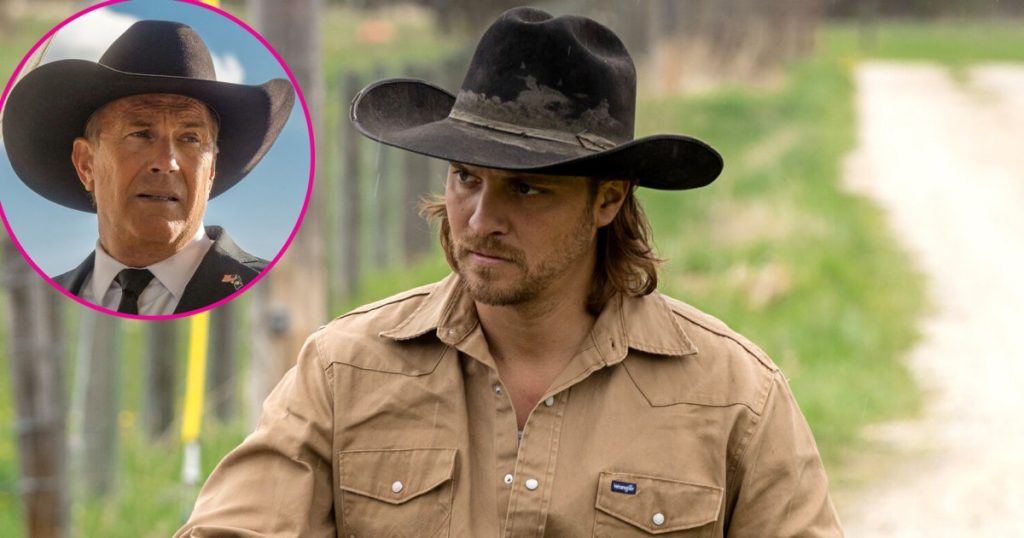The abrupt departure of Kevin Costner from the hit television series Yellowstone has sparked a wave of discussion and speculation, particularly regarding his relationship with the remaining cast members. Luke Grimes, who portrayed Kayce Dutton, Costner’s on-screen son, has been particularly candid in recent interviews, offering glimpses into the on-set atmosphere during Costner’s absence and the subsequent impact on the show’s dynamic. Grimes’s remarks, while seemingly innocuous on the surface, hint at underlying tensions and a complex interplay between professional respect and personal distance.
Grimes’s comments suggest a sense of relief at the departure of Costner, implying that his absence simplified the filming process and lessened on-set friction. He attributed this ease to the removal of a major source of conflict within the storyline, which revolved heavily around the complex and often strained relationship between John Dutton, played by Costner, and his children. While acknowledging the significant role Costner played in the show’s initial success, Grimes subtly implies that the show had evolved beyond its dependence on the veteran actor. His statements, delivered with a careful balance of diplomacy and transparency, paint a picture of a production navigating the unexpected challenges of a leading star’s departure.
The narrative surrounding Costner’s exit from Yellowstone is further complicated by Grimes’s revelation of limited communication between the two actors. Grimes indicated that he had not spoken with Costner since his departure, attributing the lack of contact to a combination of respect for Costner’s status and an understanding of the circumstances surrounding his exit. He refrained from directly criticizing Costner, instead emphasizing the unpredictable nature of such situations. This cautious approach, coupled with his acknowledgment of Costner’s stature in the industry, suggests a desire to avoid fueling further controversy while still offering his perspective on the situation.
The dynamic between Grimes and Costner appears to be characterized by a mix of professional respect and personal distance. While Grimes acknowledges Costner’s importance to the show and refrains from outright criticism, he also hints at an underlying tension and a lack of personal connection. This distance is underscored by Grimes’s admission that he has not contacted Costner since his departure, suggesting a certain level of acceptance of the changed dynamic. The situation reflects the often complex relationships that can develop within a high-pressure television production environment, particularly when dealing with the departure of a central figure.
Costner’s response to Grimes’s comments further solidified the narrative of distance between the two actors. His succinct and seemingly dismissive remarks, indicating a lack of interest in the show’s finale and confirming a cessation of communication with Grimes, underscore the finality of his departure and his apparent disengagement from the Yellowstone world. This terse response adds another layer to the complex narrative surrounding Costner’s exit, leaving room for speculation about the full extent of the tensions and disagreements that led to his departure.
In conclusion, the saga of Kevin Costner’s departure from Yellowstone is a multifaceted story of on-set dynamics, professional relationships, and the unpredictable nature of the entertainment industry. Luke Grimes’s candid yet cautious comments offer a unique perspective on the situation, revealing both the challenges and opportunities presented by Costner’s absence. While respecting Costner’s legacy and contributions to the show, Grimes also subtly suggests a shift in the show’s dynamic, indicating a move towards a future without its original patriarch. The contrasting responses from Grimes and Costner, one measured and the other terse, highlight the complexities of their relationship and the lingering questions surrounding the true nature of Costner’s departure.

